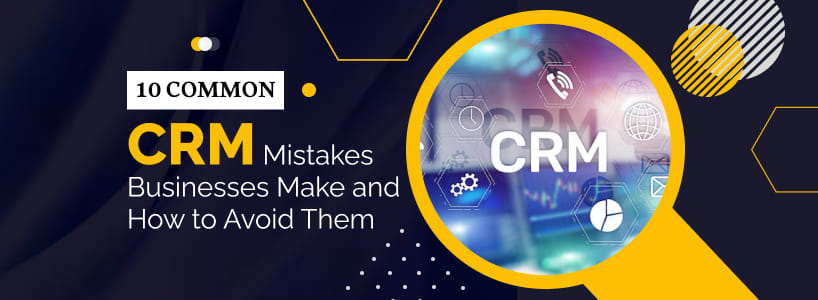Customer Relationship Management (CRM) systems are essential for businesses looking to improve customer interactions and streamline operations. However, many companies make avoidable mistakes that reduce the effectiveness of their CRM. Here are 10 common CRM mistakes businesses make and practical ways to avoid them.
1. Lack of Clear Goals
Many businesses implement a CRM system without defining clear objectives. Without specific goals, teams may underutilize the software. Always set measurable targets, such as increasing lead conversion rates or improving customer satisfaction.
2. Poor Data Quality
Incomplete or inaccurate data is a major CRM pitfall. Ensure that all customer information is validated, updated regularly, and standardized. Quality data ensures better insights and informed business decisions.
3. Ignoring User Training
A CRM system is only effective if your team knows how to use it. Invest in regular training sessions to ensure employees understand all features, which leads to higher adoption rates.
4. Overcomplicating the System
Adding too many unnecessary features can overwhelm users. Focus on core functionalities that align with your business needs. Simple, intuitive systems increase efficiency and reduce errors.
5. Not Integrating with Other Tools
CRM works best when integrated with email, marketing automation, and other business tools. Integration prevents data silos and ensures seamless communication across departments.
6. Neglecting Mobile Access
In todays fast-paced environment, teams need CRM access on the go. Mobile-friendly CRMs allow employees to update data, check customer information, and respond quickly from anywhere.
7. Failing to Segment Customers
Treating all customers the same can reduce engagement. Use CRM data to segment audiences based on behavior, demographics, and preferences. This allows for personalized communication that drives conversions.
8. Not Tracking Metrics
Without monitoring key performance indicators (KPIs), businesses cant measure CRM success. Track metrics like lead conversion, customer retention, and response times to identify areas for improvement.
9. Ignoring Customer Feedback
CRM is about managing relationships. Regularly review customer feedback to enhance services, improve communication, and increase loyalty.
10. Choosing the Wrong CRM
Not all CRMs are created equal. Selecting a system that doesnt align with your business needs leads to wasted resources. Research options carefully, consider scalability, and involve your team in the decision.
Avoiding these mistakes can dramatically improve your CRM efficiency and help your business grow. For expert guidance on CRM solutions and best practices, you can reach out to crm@weblink.
